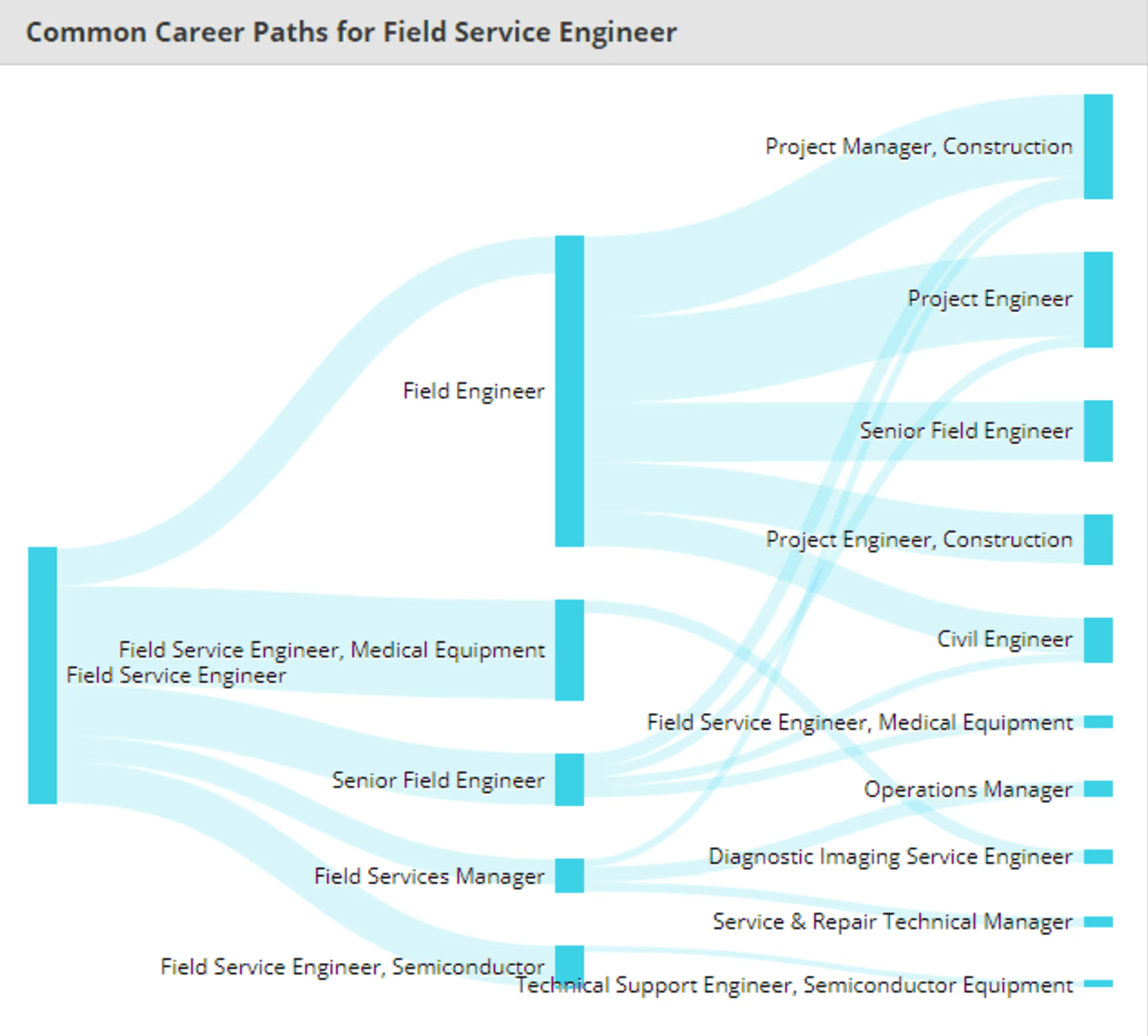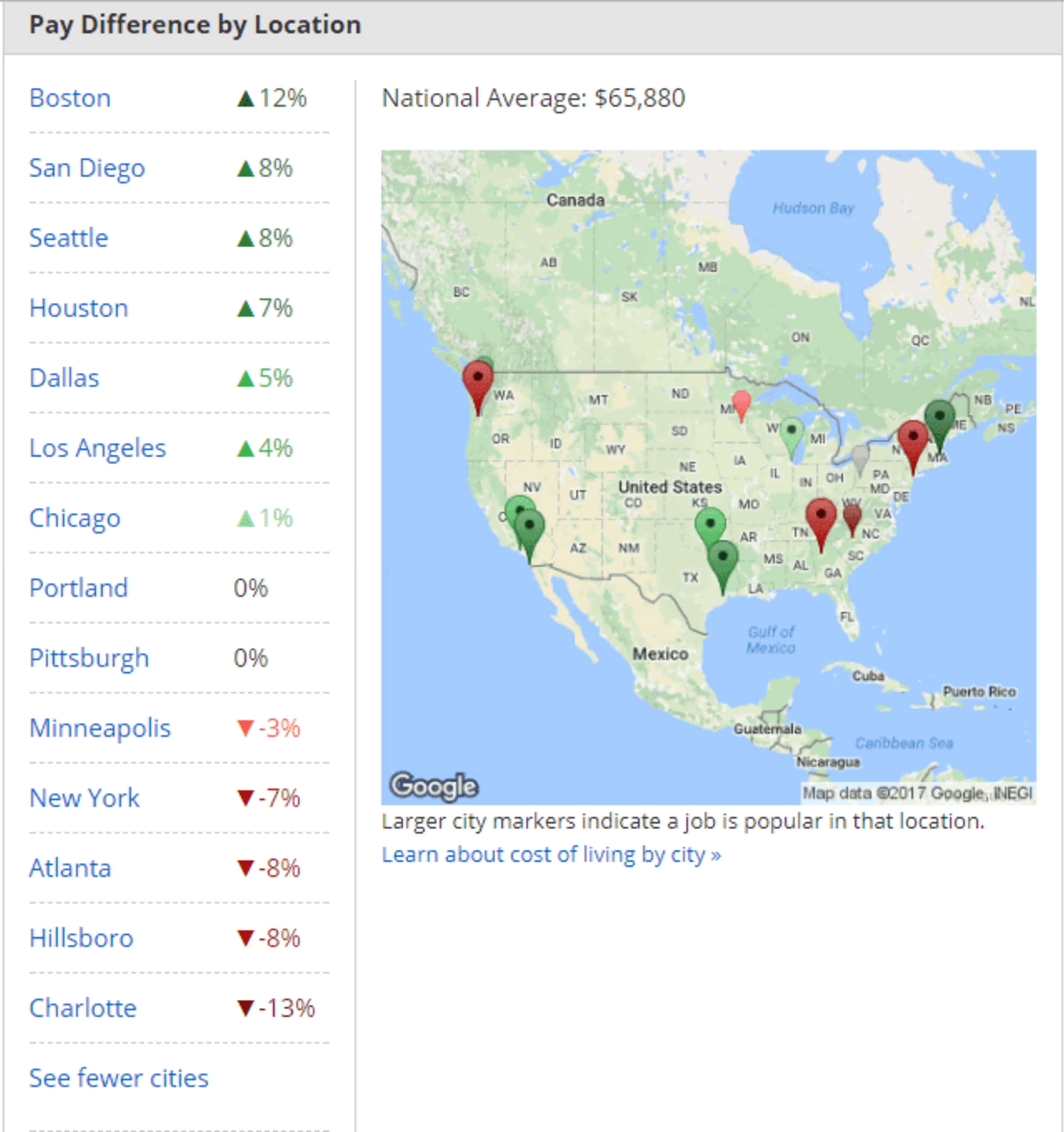Maybe you've been in the field service engineering game for years, or maybe you're just starting out.
Overall, you love your job—you enjoy helping customers and working with new technologies. However, you can't very well ask other field service engineers what they're making, so you don't know whether your salary matches your value.
Whether you're in it to fulfill your passion for helping customers or for the joy of working with computers, money still matters.

Field service engineering salaries, like any salary, fluctuate depending on many factors. As of February 2017, the national average annual salary for a field service engineer was $62,450 according to Glassdoor, though the range varies between $43,000 and $109,000.
That's a huge range, so how do you know where you fit in?
Lots of variables can affect any salary. Here are four major factors for a field service engineer salary that will help you determine how much you're worth.
1. Experience
In every job, the more experience you have, the more you get paid. Field service is no exception. Your job requires a lot of on-the-job training, staying up to date with new technologies in the industry, building a relationship with customers, and understanding the ins and outs of field work. Experience is extremely valuable to an employer in a rapidly changing and expanding industry.

The many-legged field service engineering career via PayScale.
First, a relevant associate's degree will go a long way. The lowest education level required for field service engineering is a GED, but certifications never hurt, and can potentially increase your salary.
Second, any experience working in customer or computer service, project management, systems repair, etc. will make you an even more valuable asset. And finally, of course, experience in a management role would qualify you for higher positions.
Keep in mind that salary increases generally taper off after twenty years of experience.
An entry-level engineer will fall at the lower end of the scale, between $40,000 and $60,000, depending on where they are.
2. Location
Speaking of where you are, your location matters in your engineering job almost as much as it matters in real estate.
According to PayScale, your best bet is in northeastern cities such as Boston, where the average pay is $71,542. That's 12% higher than the national average.

Field service engineer salaries differ by location, via PayScale.
Meanwhile, a lower paycheck will come from southeastern cities such as Atlanta and Charlotte, which pay 8% and 13% below the national average, respectively.
The further west you go, the higher your paycheck will rise. Southwestern cities such as Houston and Dallas pay somewhere in between, around 5% and 7% more than the national average respectively.
Northwestern cities such as Seattle pay 8% above the national average.
Generally, northeastern and southwestern cities will have the best paychecks. But this rule isn't without its exceptions. New York City pays 7% less than the national average, and Portland pays exactly the national average.
3. Engineering Firm
Ever heard of the Ritz Carlton? The Rockefeller Center? Of course you have. These are famous buildings, and you probably have to pay through the nose just to breathe the air. Field service companies operate under the same principle.
Generally, the more well-known, the more trusted, the more established the firm, the higher your salary.
For example, according to Glassdoor, General Electric pays their engineers about $70,000 per year, and Siemens, the largest industrial manufacturing company in Europe, pays their field service engineers $78,000 per year.
Compare that to the smaller DC Group, which pays their engineers around $58,000.
Location of the firm plays a role here as well, and of course if the company is multinational, they're more likely to pay higher salaries.
What you can do is research your potential employer. Glassdoor and PayScale offer great resources for research on every profession. Sites like Field Technologies Online are more tailored to the field service engineering scene, and O*NET and the Bureau of Labor Statistics provide great statistics and data on salaries and benefits.
4. Industry
There are many different kinds of field service engineering, and not all engineering is created equal. Depending on your location and experience, your skill set could also determine your paycheck.
If you're in computer services, you're looking at the lower end of the spectrum, with a median salary of $57,976. Project management comes in with a highest median salary of $67,417 per year, with mechanical tool repair at a close second of $65,507. In between, troubleshooting and hardware technicians earn between $60,000 to $70,000.
Connected to skill set and yet significant enough for its own list on this article is the industry you put your engineering mind to work in. The Bureau of Labor Statistics identified four different categories of field service engineers:
electrical and electronic technician
aviation mechanic/avionics engineer
automotive service technician
HVACR technician
Each category pays a different salary. Here are the ranges:
$58,130-$72,720 | |
$53,410-$71,810 | |
$46,690-$70,810 | |
$32,760-$42,680 | |
$43,440-45,910 |
How does your field service engineer salary compare?
Every experience is unique, and field service engineering is no exception. Have a different or interesting experience you'd like to share—maybe about how you got started and whether your salary experience aligns with the ones described above? Have any advice for the young'uns? Leave it in the comments below!